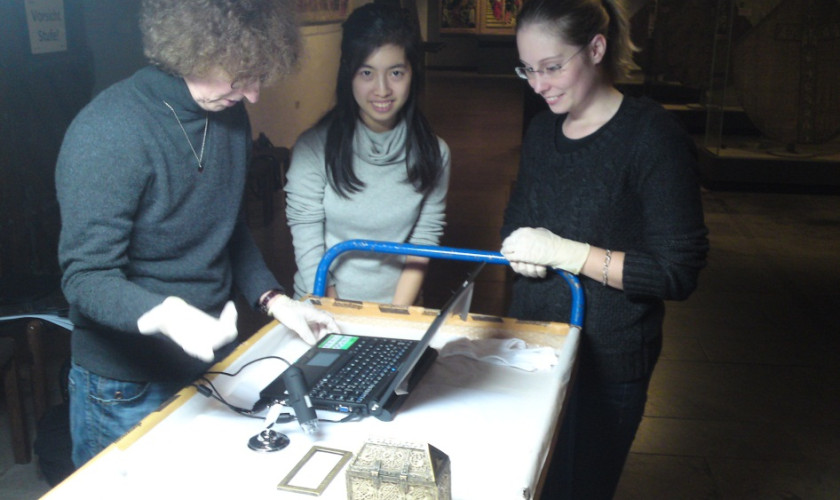I was very happy upon my acceptance to the EuroScholars program as it represented many firsts to me: the sanction to study abroad in Europe while graduating on time, the experience to conduct research in English and contribute to a larger project, and the chance to understand Old English from the perspective of German scholarship. Prior to my time in Munich, I had studied Old English in the way it is traditionally taught to English majors in the U.S., that is, as literature. German scholarship, however, has a much heavier linguistics focus concerning this subject. Yet not only was I able to learn a different methodological approach, but I was able to visit and handle the objects I studied first hand. Given the lack of runic objects in the U.S. compounded by my obvious lack of seniority in the scholarly community, this is an opportunity I would never have had, had I not elected to conduct research abroad with EuroScholars.
Yet research and academic gains aside, my stay was very enjoyable, for not only was I able to explore Munich, but I also made several day trips --- some planned by my mentor, others by myself --- to the surrounding Bavarian countryside and nearby Salzburg. Though I knew no German prior to my stay, this was not an issue: the language instruction included in the EuroScholars program helped ease the transition. Thus equipped with bits and pieces of German, including "Mein Deutsch ist nicht sear gut" (My German is not so good) and "Sprechen Sie English?" (Do you speak English?), I set off to explore Munich's many museums and coffee shops. And, though Oktoberfest definitely has a highly "touristy" aspect to it, the festivities are not to be missed! In fact, despite dissenting opinions, try on a dirndl or lederhosen!
Overall, my experience in Munich with EuroScholars was amazing---it was full of not only academic but also cultural experiences and opportunities. My mentor and I are still in close contact and, perhaps someday, I will have the chance to return and pick up runic research once more.

